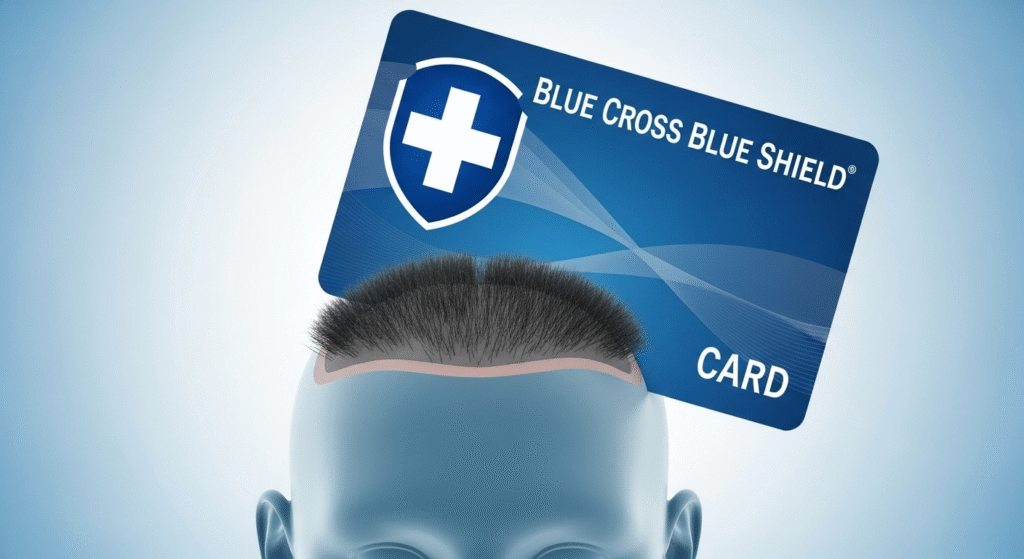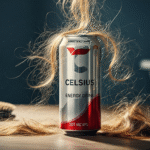If you're wondering does Blue Cross Blue Shield cover hair loss treatment, you're likely seeking clarity on whether medications, procedures, or services for hair restoration are eligible under your insurance plan. This guide breaks down coverage criteria based on medical necessity, plan types, authorization procedures, and realistic alternatives—using expert-backed insight to help you navigate your …
If you’re wondering does Blue Cross Blue Shield cover hair loss treatment, you’re likely seeking clarity on whether medications, procedures, or services for hair restoration are eligible under your insurance plan.
This guide breaks down coverage criteria based on medical necessity, plan types, authorization procedures, and realistic alternatives—using expert-backed insight to help you navigate your options confidently.

How Does BCBS Handle Hair Loss Coverage?
Cosmetic vs. Medical Treatment
Blue Cross Blue Shield generally classifies medical coverage when hair loss stems from recognized health conditions—like alopecia areata, thyroid disorders, or chemotherapy-related shedding. In contrast, pattern hair loss or cosmetic thinning is usually excluded.
Conditions That May Qualify
Coverage may be approved for hair loss caused by autoimmune conditions, scalp injury, or medical therapies such as chemotherapy.
Coverage Limitations
Procedures like hair transplants, PRP injections, or cosmetic styling are typically not covered, as they are considered elective services.
What Hair Loss Treatments Might Be Covered?

Prescription Medications
FDA-approved treatments like minoxidil, finasteride, or spironolactone may be covered if deemed medically necessary by a healthcare provider.
Approved Procedures
Treatments required for conditions like cicatricial alopecia or autoimmune disorder-related hair loss may be considered eligible if documented properly.
Navigating BCBS Coverage and Approval Process

Reviewing Policy Documents
Check your Summary of Benefits and Coverage (SBC) and Explanation of Coverage (EOC) to verify hair loss services. Details on covered supplies, prior authorization, and exclusions vary by plan.
Prior Authorization & Documentation
BCBS often requires documentation from a treating provider to confirm medical necessity—this includes diagnosis, treatment history, and rationale for proposed therapies.
Does Blue Cross Blue Shield Cover Hair Loss: Appealing a Claim Denial
If coverage is denied, a dermatology note or medical evaluation may support an appeal. Many claims succeed after submitting additional documentation.
real Stories & Case Examples (EEAT Emphasis)
- Chemotherapy-Related Coverage: A patient on a BCN Advantage Medicare plan received reimbursement for a medically prescribed wig due to hair loss from cancer treatment.
- Minoxidil Prescription Coverage: A patient stabilized androgenetic alopecia with prescription topical treatment approved after dermatologist endorsement.
Detailed Guidelines for Wig (Cranial Prosthesis) Coverage under BCBS

Notes exceptions—most policies specifically exclude coverage for wigs used for pattern baldness or cosmetic reasons.
Explains the circumstances under which BCBS considers a wig a medical prosthesis, typically requiring a qualifying medical diagnosis like chemotherapy-induced hair loss, alopecia totalis, or serious scalp injury.
Describes frequency and replacement rules, such as coverage eligibility for a new wig every few years due to wear or growth.
Lists documentation requirements: physician prescription, diagnosis coding, and supplier enrollment in provider networks.
BCBS Prescription Drug Coverage for Hair Loss Treatments
Highlights plan restrictions—including tier-based formulary placement, exclusions for over-the-counter equivalents, prior authorization, and step therapy rules.
Describes BCBS’s general policy that hair growth drugs (like minoxidil or finasteride) are often classified as cosmetic, meaning coverage is typically denied unless prescribed for a medically recognized condition.
Clarifies cases where coverage might be granted, such as FDA-approved medications prescribed off-label when medical necessity is well documented.
Summary & Key Takeaways
Consult with your BCBS plan documents and healthcare provider to assess eligibility.
BCBS coverage for hair loss depends heavily on the underlying cause—medical conditions may qualify, while cosmetic hair loss typically does not.
Approved services may include prescribed treatments, surgical interventions only in rare circumstances, and wig coverage for certain cases.
Successful claims often require prior authorization, clinical documentation, and sometimes an appeal.
FAQs
Does BCBS cover hair transplant surgery?
No. Hair transplants are considered cosmetic and not eligible for coverage.
Is PRP or laser treatment reimbursed?
Typically not—these are elective procedures unless tied to a diagnostic condition requiring medical necessity.
Do plan members get Rogaine covered?
Over-the-counter minoxidil is usually not covered; prescription forms may qualify if prescribed for a diagnosable medical condition.
Can I get wig coverage for pattern baldness?
Coverage for wigs is typically restricted to cases like chemotherapy or alopecia totalis—not pattern hair loss.
How do deductible and copay apply?
Any approved treatment is subject to your plan’s standard deductible and copays, so verify your medical cost share.
Call to Action
Book a consultation with Dr. Uzma Irfan, an ISHRS-certified surgeon to evaluate your medical condition, prepare documentation, and explore supported treatments or affordable alternatives under your health plan.






